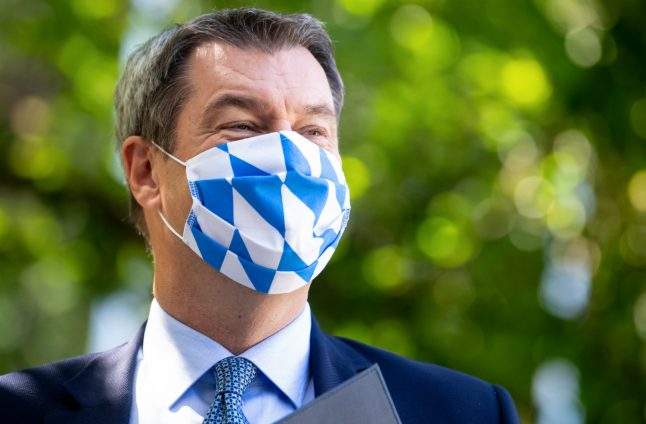State premier Markus Söder, of the Christian Social Union (CSU), the sister party of Angela Merkel's CDU, announced on Tuesday that the state will scrap the coronavirus test centres on motorways at the border, as well as in Munich and Nuremberg train stations.
According to the cabinet, testing capacity that becomes free will instead be diverted “on demand” to other test centres such as those in districts and cities.
However, the test stations at Munich, Nuremberg and Memmingen airports will remain in place.
The test hubs earmarked for closure will shut by the end of the summer travel season on September 30th.
It comes after repeated complaints about delays in getting coronavirus test results. Bavaria came under fire when it emerged in mid-August around 44,000 out of 85,000 people hadn't yet been told of their results over a week after being tested.
Among the results were at least 900 positive tests. The state government said that problems with the manual input of data and a high uptake of the service was to blame for the delay.
READ ALSO: What you need to know about Bavaria's testing fiasco
'Over five days to get our test results'
The Local Germany reader Scott McLaughlin, based in Munich, told how he had to wait more than five days to get results for him and his family after a roadside test. Authorities had reassured him that test results would be available in one to two days.
The family was returning from the south of France, which became a high risk zone at the end of August while they were still there.
What else is new in Bavaria?
At outdoor gatherings, compulsory face coverings are to become a regular feature in Bavaria as early as this Wednesday, September 9th. The obligation will take effect with events with 200 people or more, the cabinet decided.
And those who've been missing Kneipe (pub) culture in Bavaria can mark this date in the calendar: from September 19th, bars and pubs will be allowed to open again under strict conditions.
READ ALSO: Coronavirus rules – what's allowed (and what isn't) in Bavaria?
According to the cabinet decision, pubs and bars will have to stick to the same rules as restaurants. In restaurants staff have to get the contact details of customers so they can be informed if there is an outbreak. Face masks are also required when people are away from their table.
In bars, table service will also have to be in force. Clubs, which Söder called “infectious bombs” will have to remain closed.
Up until this point, beer gardens or pubs with outdoor areas have only been allowed to open.
Also from September 19th amateur football and other sporting events can go ahead.
Bavaria has implemented stricter coronavirus rules compared to other states in Germany as it is the region hardest hit by the pandemic.
As of Tuesday there were 59,298 cases reported in the region, with 284 new cases within 24 hours.



 Please whitelist us to continue reading.
Please whitelist us to continue reading.
Member comments